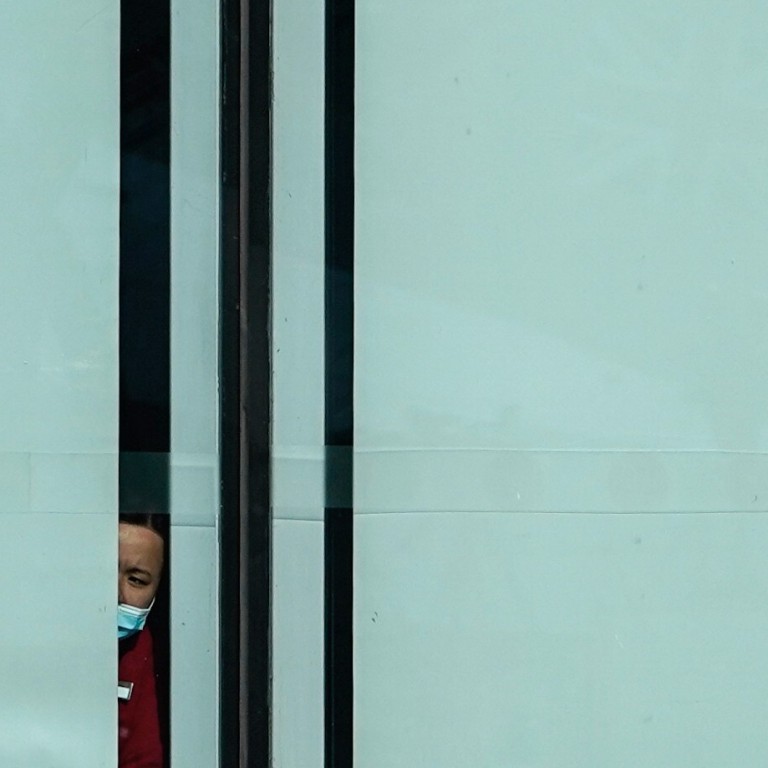
Can slimmed-down Cathay Pacific still protect Hong Kong’s status as global aviation hub?
- Survival of flagship carrier viewed as critical to city’s fundamental role serving the region and the world
- Government should ensure Cathay’s international air rights are protected and seek help from Beijing to operate more flights serving mainland Chinese passengers, experts say
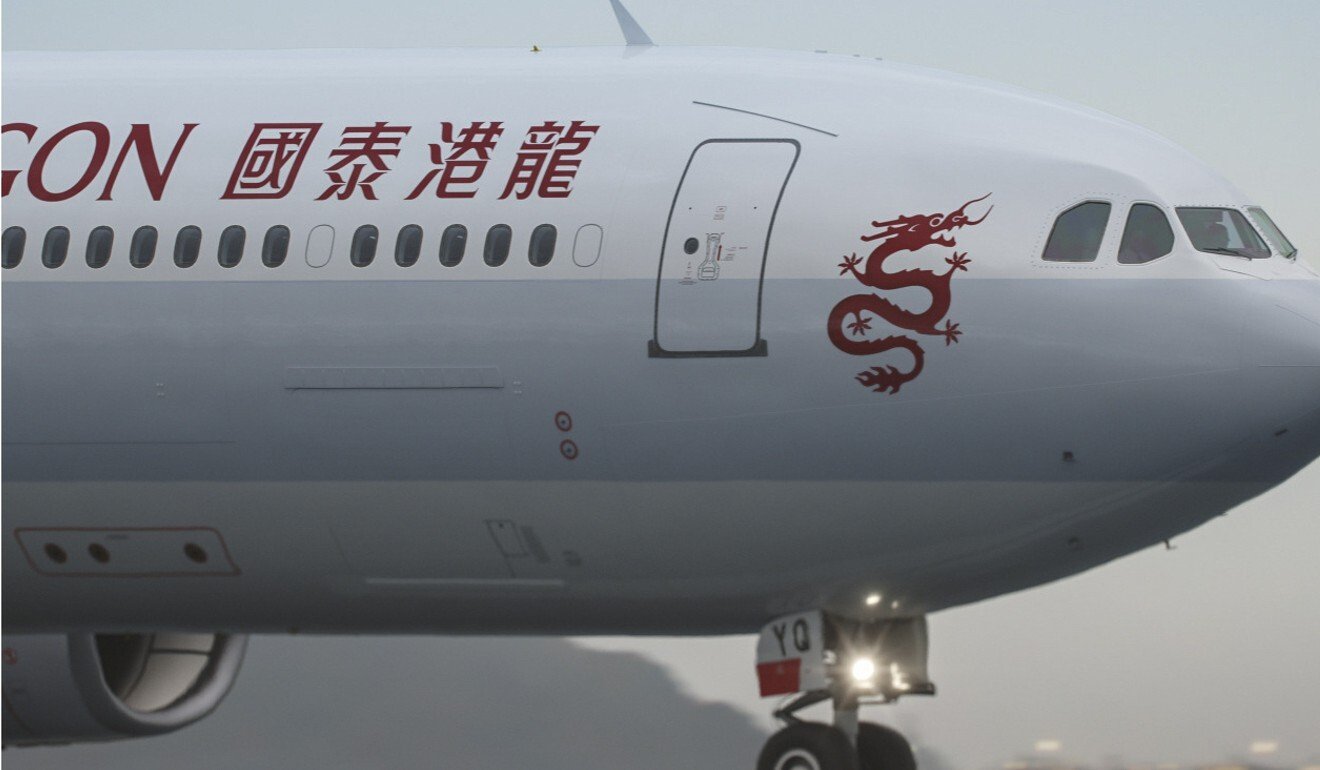
“Cathay Pacific has to survive and needs to keep its strength and competitiveness,” said Law Cheung-kwok, senior adviser at the aviation policy and research centre at Chinese University. “International routes to London and Europe, to North America, Australia and many parts of the world, are what makes it stand out from other competitors in the region.
“Only then will Cathay still have its edge. We are a hub because we have these long-haul flights for businesses, not because we provide regional travel.”
Cathay Dragon employees shocked, shaken by decision to axe Hong Kong airline
Hours after the restructuring was announced, Financial Secretary Paul Chan Mo-po said the flagship carrier’s sustainability was a “life-or-death” issue that must be properly addressed or Hong Kong’s aviation hub status, and therefore its overall interests, would be undermined.
Before the pandemic, Cathay Pacific operated 132 aircraft to 59 international destinations, while Cathay Dragon served regional 51 destinations and mainland China.
“But to hold on and to survive through this difficult period is the most important thing for Cathay,” he said, adding the pandemic affected not just Cathay but the survival of all key players in the industry.
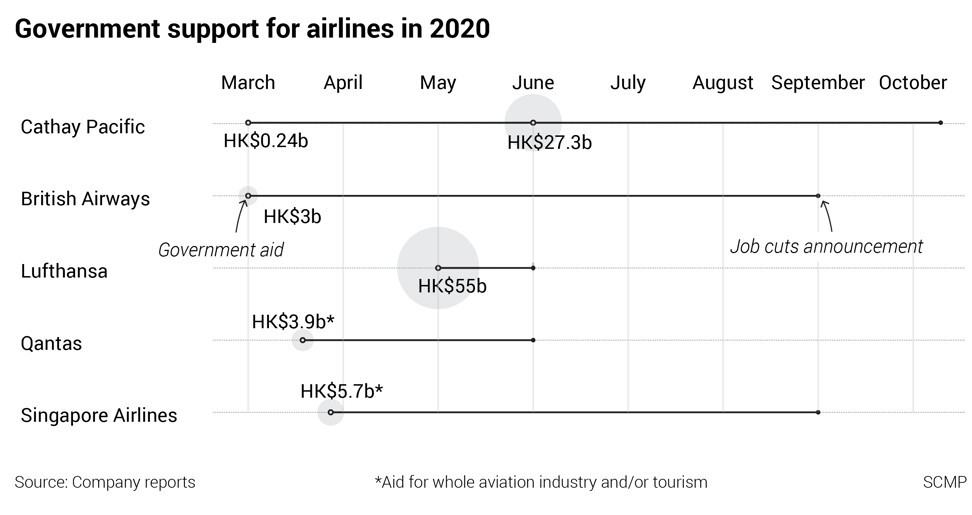
“If Cathay fails to operate flights and maintain routes, Hong Kong could be forced to surrender air traffic rights to competitors overseas,” he said.
The administration understood that international aviation rights were the airline’s most important assets, government insiders said.
One source said Cathay’s restructuring was considered more “cost-effective” compared to what other major carriers such as Singapore Airlines underwent.
“The request we made – through the advisers – was to keep the impact of the mass lay-offs to a minimum,” the source said. “We are not sure when the pandemic can improve worldwide and we tried to minimise the government’s influence on Cathay’s commercial decisions.”
The city state’s main carrier announced the dismissal of 4,300 employees, about a fifth of its workforce, last month as part of an overhaul following the injection of as much as S$19 billion (US$14 billion) into the airline in May by state investor Temasek Holdings and others.
The Hong Kong government offered a financial lifeline to Cathay in June, leading a HK$39 billion (US $5.03 billion) recapitalisation effort.
Cathay has take-it-or-leave-it deal for pilots: salary and benefit cuts, or the door
The actual redundancy rate announced on Wednesday was about 17 per cent of total staff once the company’s recruitment freeze and voluntary retirement scheme were taken into account, a source said.
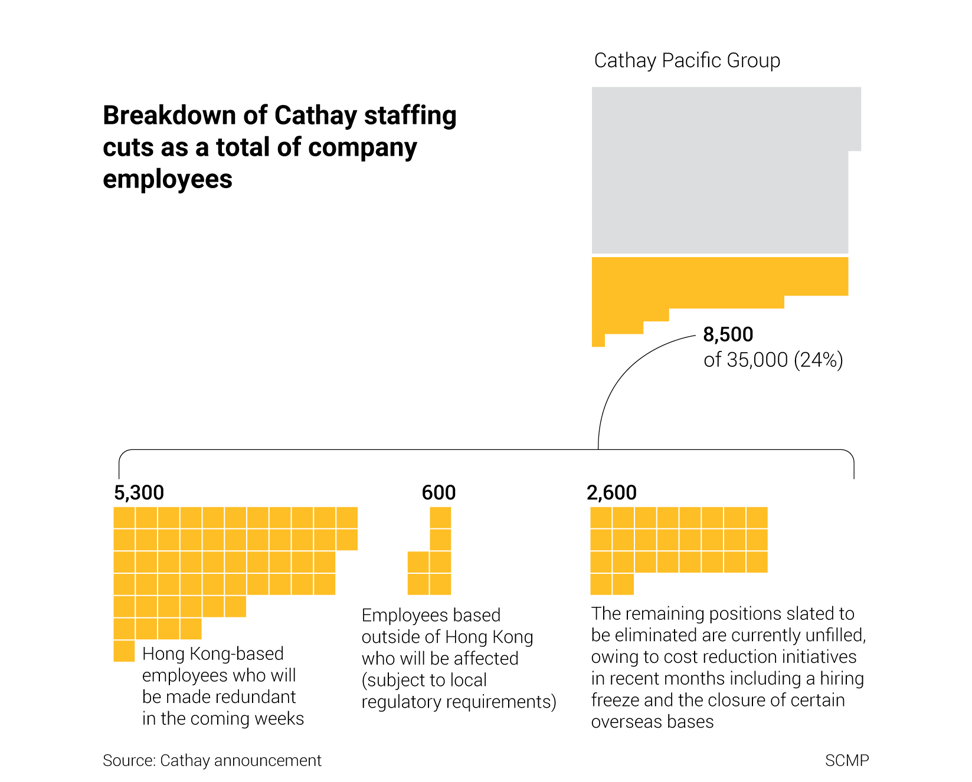
Lam on Monday revealed Beijing was considering her proposals to speed up the recovery of the local aviation industry but stopped short of providing details.
Professor Lau Siu-kai, vice-chairman of the semi-official think tank Chinese Association of Hong Kong and Macau Studies, said Lam should fight for business and tourism opportunities in the bay area, which covered Hong Kong, Macau and nine Guangdong provincial cities.
Cathay axes record 6,000 Hong Kong jobs and closes regional airline
“Hopefully, the central government would allow us to reopen the borders with nearby cities even if we cannot eradicate all Covid-19 cases, so that more flights could resume,” Lau said. “The government should also try to seek approval from Beijing to open up more aviation rights for us after the third runway is completed – to plan ahead for recovery.”
The Airport Authority expects the third runway to open by 2022 and the entire triple system to be operational by 2024.
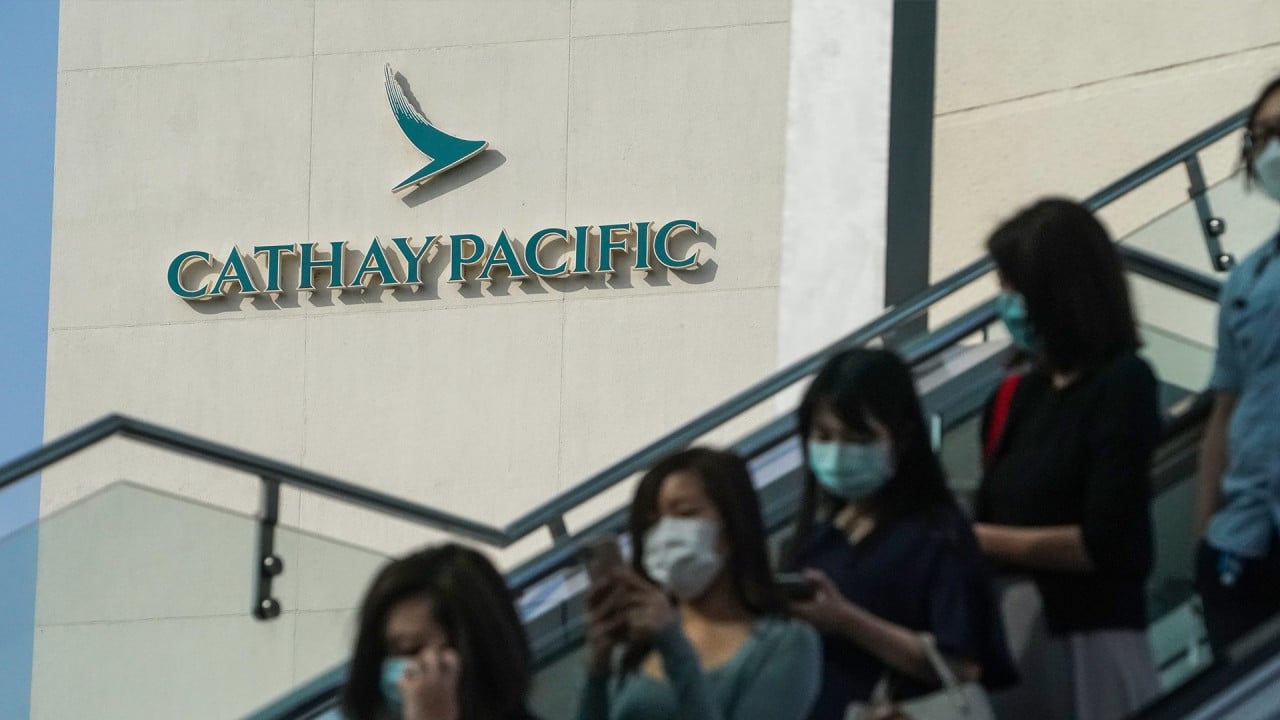
03:43
Cathay Pacific Airways announces its largest job cuts in history
But it was up to the central government to decide whether to provide assistance to Hong Kong, which could depend on how much the city was willing to commit to the development of the bay area in the future, he said.
“It will not be Carrie who makes the call,” Lau said. “It depends on how much the central government still values Hong Kong.”
Airlines need billions more in bailouts to survive Covid-19 crisis: industry
Ronny Tong Ka-wah, another executive councillor, said resuming tourism should be one area of discussion but he expressed concern the uncertainty caused by the pandemic in Hong Kong would be a hindrance.
“Some people suggested we should allow mainlanders to visit Hong Kong first as there are fewer cases in China, but it would be controversial too,” he said, referring to anti-mainland sentiment. “I am not too optimistic about flying before vaccines are introduced.”

